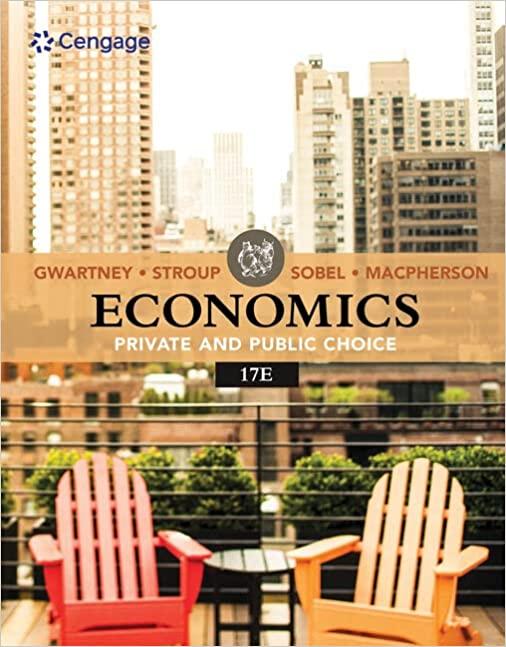Question
Schedule of Expected Cash Collections Schedule of Expected Cash Disbursements - Merchandise Purchases Schedule of Expected Cash Disbursements - Operating Expenses Combined Cash Budget Budgeted
Schedule of Expected Cash Collections
Schedule of Expected Cash Disbursements -
Merchandise Purchases Schedule of Expected Cash Disbursements -
Operating Expenses Combined Cash Budget
Budgeted Balance Sheet
Bobcat Boutique is a merchandising business located downtown in San Marcos, Texas. The owners are Texas State alumni and they would like to maximize their profits. They understand that accurate budgeting will help obtain this goal. The company is completing its second year of operations and is preparing to build its master budget for the second quarter. The budget will detail each quarters activity and the total for the quarter.
The master budget will be based on the following information:
Sales were budgeted at $50,000 for September.
Expected sales are $60,000 for October,
$72,000 for November, $90,000 for December,
$48,000 for January.
The gross margin is 25% of sales. Sales are projected to be 60% for cash and 40% on credit.
Credit sales are collected in the month following the sale. The September accounts receivable are a result of the September credit sales. There are no bad debts.
Each months ending inventory should equal 80% of the following months budgeted cost of goods sold. Merchandise Inventory Purchases are paid as follows; 50% of a months inventory purchases is paid for in the month of purchase; the other 50% is paid for in the following month.
The accounts payable at September 31 are the result of September purchases of inventory. Monthly operating expenses are as follows: commissions are 12% of sales; rent is $2,500 per month, other operating expenses (excluding depreciation) are 6% of sales. Assume these expenses are paid monthly. Deprecation is $900 per month.
Equipment costing $1,500 will be purchased for cash in October.
Income tax is estimated to be 28% of operating income. Estimated taxes are accrued each month and paid in cash in the last month of the quarter.
Management would like to maintain a minimum cash balance of at least $3,000 at the end of each month. The boutique has an agreement with a local bank that allows them to borrow in increments of $1,000 at the beginning of each month, up to a total loan balance of $20,000.
The interest rate on these loans is 1% per month and for simplicity we will assume that interest is not compounded. They would, as far as it is able, repay the loan plus accumulated interest at the end of the quarter. T
he balance sheet as of September 31, is as follows:
Assets September 31
Cash $8,000
Accounts Receivable 20,000
Inventory 36,000
Plant & Equipment,
net 120,000
Total assets $184,000
Liabilities & Equity Accounts Payable $21,750
Retained Earnings 162,250
Total liabilities & equity $184,000
| October | November | December | Total | |
| Collections of: | ||||
| Cash Sales | ||||
| Credit Sales | ||||
| Total Collections | ||||
| Payments of: | ||||
| Current Month Purchases | ||||
| Prior Month Purchases | ||||
| Total Payments - Merchandise Inventory Purchases | ||||
| Commissions | ||||
| Rent | ||||
| Other Operating Expenses | ||||
| Total Payments - Operating Expenses | ||||
| Beginning Cash Balance | ||||
| Cash Collections | ||||
| Cash Available | ||||
| Cash Payments: | ||||
| Merchandise Inventory Purchases | ||||
| Operating Expenses | ||||
| Equipment Purchase | ||||
| Income Taxes | ||||
| Ending Cash Balance before Financing | ||||
| New Borrowings | ||||
| Debt Repayments | ||||
| Interest Payments | ||||
| Ending Cash Balance after Financing | ||||
| Cash | ||||
| Accounts Receivable | ||||
| Inventory | ||||
| Plant & Equipment, net | ||||
| Total assets | ||||
| Accounts Payable | ||||
| Retained Earnings | ||||
| Total liabilities & equity | ||||
Step by Step Solution
There are 3 Steps involved in it
Step: 1

Get Instant Access to Expert-Tailored Solutions
See step-by-step solutions with expert insights and AI powered tools for academic success
Step: 2

Step: 3

Ace Your Homework with AI
Get the answers you need in no time with our AI-driven, step-by-step assistance
Get Started


